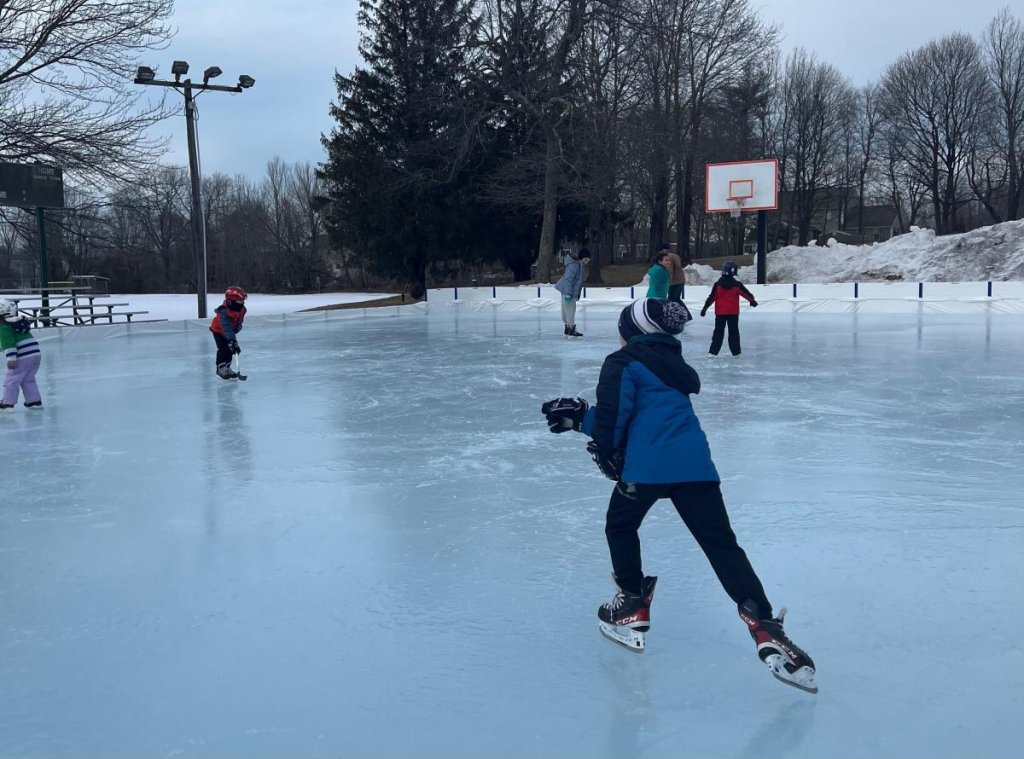Everyone interacts with nature all the time. The majority of times, life continues its routine for people busy fulfilling their responsibilities. However, at times, one comes across certain natural settings that get imprinted in the mind forever or at least for a longer period. This story is such an interaction with nature that has imprinted in my mind that is shared here
I prefer to walk/jog on the trails when weather and the surface conditions are permissible. One year, in mid-March when I started my routine walk, light snow was falling that day. However, the surfaces were icy and slippery at some parts of the trail. I thought I would be able to figure out those hazardous spots and still be able to walk/jog under those conditions. But one cannot outsmart nature. I was over a mile on my way from home when I hit an icy patch and fell down hard on my left side. My ribs and head got hit on the pavement badly. I was disoriented for a couple of seconds, but able to get up and walk. It was a disappointing moment and I decided to abandon the forward walk and instead walk back home. My head continued to ache for a week or so and the ribs continued to be tender for a few weeks that eventually got back to normal.
Walking to Bloomer Park and Descending the Stairs
I did not venture to go on the trail for two weeks and instead used the tread mill. If one is used to exercise outdoors, it is not easy to adjust to doing the same indoors. On one of the days in late March there were a few flurries falling down. Although I was wary of going on the trail, I decided to take a chance to go out anyway. Instead of going on my usual route, decided to walk to the neighborhood park named Bloomer Park and the trail behind it. That is a dirt/pebble trail and thought it might be safe for walking over there. The park is a little over a mile from home. I came across some icy patches along the way and avoided them by walking on the grass.
The park is situated on a hill and the trail behind it is in a deep valley. There are many natural ways to get to the trail. At one of the junctures, the municipal government has constructed stairs from park to the trail (193 steps to be exact). Well, of course going down the stairs is quite easy, but going back up is particularly challenging because it equates to climbing up fifteen floors. There are brave souls and exercise buffs who go up and down the stair’s multiple times. Sometimes, you see people carrying heavy loads on their backs while maneuvering the stairs for additional strength training.

The Park Scenery and Walking in the Woods
This is a beautiful park with play areas for kids, nice picnic spots, walking and running trails, soccer fields, sledding runs and a cricket pitch (interstate matches happen here with players visiting from neighboring states). This park has a Velodrome where one can watch cyclists fiercely competing in the summer.
I walked through some parts of the park, descended down the stairs and started walking on the trail enjoying the peaceful natural habitat. The surroundings have mixed scenery with a hilly terrain on the right, a lively stream on the left (random tributaries join along the way) and abundance of mature trees. There are solitary places along the trail with occasional people taking walks, the proximity of ducks calmly sitting or slowly paddling in the stream, chirping birds, deer and other animals running around, having their meal, or simply staring at the passersby. Each season brings its own charm with trees and flowers colors and the warm, hot, cold, and chilly atmospheric conditions.


At other places, one comes across groups of people of all ages enjoying seasonal activities such as biking, walking, various organized sports and other fun activities like sledding and skating.


This particular walk happened to be in winter (although officially it was spring, but winter lingers along until late-April in this part of the country). After about half a mile on the trail, a big stream joins the original one that becomes a lively small river. This confluence takes a sharp turn near Yates Cider mill and crosses a little fall resulting in acceleration and generating soothing sound of the rushing water. I lingered at this spot for a few minutes to listen to that soothing sound and then started walking back to reach the stairs. Climbing uphill for fifteen floors was arduous in itself and avoiding slippery spots of ice to avoid a free fall on the stairs brought additional challenge.
Total distance from home to river spot is about three miles, so the total walk is six miles from and to home. The temperature was in the low twenties, howling winds with wind chill factor in single digits, but it was worth it. The memory of this interaction with nature is imprinted in my mind with the sounds of singing birds, trees making music while rhythmically swaying with intense winds and the river’s rushing sound. I am glad to take that route on that day to enjoy the scenery, the beauty and participation in the environment along with the rest of nature’s creations.
Hope that you were able to enjoy this walk along with me. Please share your own interactions with nature.

